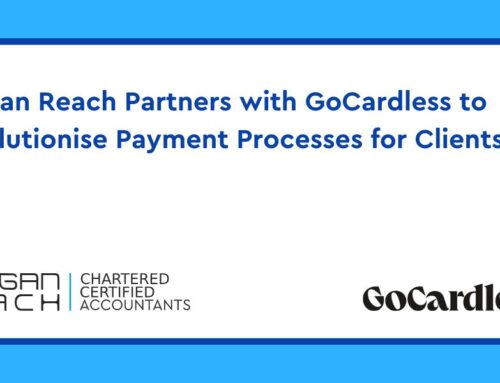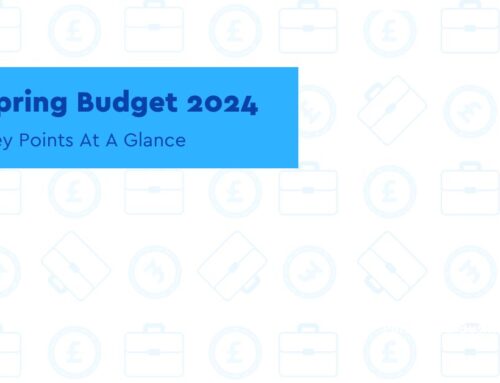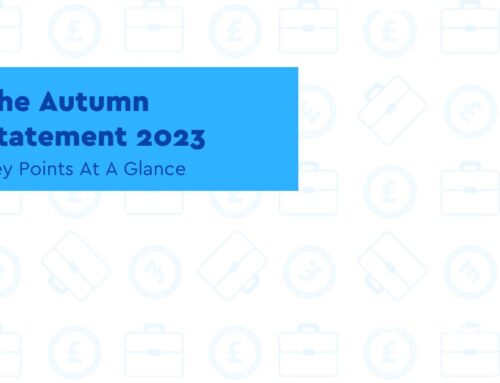News – PAYE
PAYE payment deadline approaches
Key Points
- HMRC is warning taxpayers that this deadline falls on a weekend, meaning payment is due earlier
- Any late payments will incur a penalty so it is recommended you check cut-off times with your bank or building society
Employers have less than a month to make electronic PAYE payments for April, with HMRC warning taxpayers that the normal deadline (22nd of the month) falls on a weekend.
This means payment needs to reach HMRC by May 20, unless faster payment is available.
Any late payments will incur a penalty, so it is recommended you check single transactions, daily value limits and cut-off times with your bank or building society.
If employers need to register for a PAYE settlement agreement (PSA) or make any amendments to an existing PSA, they have until July 5 for the 2021/22 tax year. Any additional items added to a PSA will result in an appendix to an existing agreement, not a new agreement.
Employers who have not yet registered to payroll expenses and benefits are also being encouraged to sign up for the tax year 2023/24. Payrolling will mean employers will no longer need to submit a P11D for each employee, making the process easier and quicker.
Those who had an informal agreement with HMRC to payroll benefits in 2021/22 should plan to formalise an agreement soon, as HMRC may no longer accept new informal arrangements.
What you’re paying
Your PAYE bill may include:
- Employee Income Tax deductions
- Class 1 and 1B National Insurance
- Class 1A National Insurance on termination awards and sporting testimonials
- Student Loan repayments
- Construction Industry Scheme (CIS) deductions
- your Apprenticeship Levy payments (starting from April 2017) if you, or employers you’re connected to, have an annual pay bill of more than £3 million
You pay your Class 1A National Insurance on work benefits that you give to your employees separately.
PAYE Settlement Agreements are also paid separately.
This article was sourced from gov.uk: https://www.gov.uk/pay-paye-tax
News – Employers
Employer’s guide to the P60
Key Points
- You must give a copy of the P60 to each employee to keep for their own tax records
- You must also submit a copy electronically to HMRC through your usual payroll software
- The form summarises similar employment and tax information for an individual still in employment as of April 5
By May 31, an employer is required to give their employees a PAYE (or ‘Pay As You Earn’) form called a P60 (End of Year Certificate). This certificate, required by HMRC, is a summary of their year-to-date pay in a given tax year.
A P60 form is for continuing employees and it summarises similar employment and tax information for an individual still in employment as of April 5. You have a legal obligation to provide a paper or electronic copy to your employees shortly after this date each year.
The form will also contain useful information about tax and National Insurance Contributions (NICs) that have been deducted through the PAYE scheme.
This information is now available on your employees’ personal tax account but many still prefer to use the P60 as it is a good way of proving income for tax credits or mortgage and loan applications.
The form will contain the following:
- Employee identification
- The tax year
- Taxable earnings for the tax year and any tax paid (for the current employment and the total for the year if there was a previous employer in the same tax year)
- National insurance paid in the current employment for the tax year (6 April – 5 April)
- Tax code
- The employer’s PAYE (Pay As You Earn) tax references
- Their pay and income tax details, including in this current period of employment and the total for the year
It also states the following information about an employee:
- Their statutory payments, such as maternity pay, paternity paid, or shared parental pay and further deductions
- It will also show student loan deductions or postgraduate loans deductions.
You must give a copy of the P60 to each employee to keep for their own tax records and also submit a copy electronically to HMRC through your usual payroll software. Both the employer and the employee need to keep the P60 for at least six years.
P60s don’t show pension contributions, so it can be useful for the employee to keep their last payslip in case they need to trace these at a later date.
If you need to change a P60
Give your employee either a:
- New P60 marked ‘replacement’ – this can be paper or electronic
- Letter confirming the change
Get other PAYE forms
You can get other PAYE forms including:
- HMRC’s starter checklist if you have a new employee without a recent P45 – the P46 form is no longer in use
- The P46(Car) form if you start or stop providing a car to an employee for private use
- The P11D form if you need to report expenses or benefits provided to employees at the end of the tax year
News – Grants
EV chargepoint grant for landlords
Key Points
- The initiative provides up to 75% of the cost towards the purchase and installation of a socket
- This grant is for entities that rent, lease or manage residential or commercial properties
A new Government initiative is making grants available for landlords to install electric vehicle chargers outside their properties.
The new initiative provides up to 75% of the cost towards the purchase and installation of a socket (up to £350 per time). The scheme is intended to increase usage of electric vehicles in the UK and is also likely to encourage the use of pay-as-you-go cars.
Chargepoints may be able to charge one or more vehicles simultaneously, depending on the number of sockets they have.
Landlords can receive up to 200 grants a year for residential properties, and a further 100 for commercial properties.
This grant is for entities that rent, lease or manage residential or commercial properties (referred to hereafter as landlords) and want to install EV chargepoints on their properties.
You may apply for this grant if you are one of the following:
– Landlord of a property that lets the property
– Right to manage (RTM) company
– Companies owning the freehold of a leased or rented property
– Companies owning a building’s common areas. The company may comprise shareholders who are the leaseholders. The company may also manage the building
– Property factor listed here in the property factor register
– Private registered providers of social housing (PRP)
– Public authorities, such as government departments and their agencies, the armed forces, local governments, the NHS and emergency services
charities
– You will be referred to as a landlord hereafter if you are one of the above.
You must be registered at Companies House. If not, you must be VAT registered with Her Majesty’s Revenue and Customs (HMRC). If you are not registered at either, you will not be eligible for the grant.
This article was sourced from gov.uk: https://www.gov.uk/government/publications/ev-chargepoint-grant-for-landlords-customer-guidance/ev-chargepoint-grant-for-landlords-customer-guidance
News – Tax Relief
Work-from-home tax relief changes in 2022/23
Key Points
- Household expenses must be wholly, exclusively and necessarily in the performance of work duties to qualify
- You can only claim the relief if you have to work from home – not if you choose to
Employees who claimed tax relief for working from home during the pandemic may no longer qualify in 2022/23, as legal restrictions have been lifted.
During the COVID-19 lockdown, people newly working from home were encouraged to apply for tax relief for the whole year, regardless of how many days they worked from home.
The relaxed take on the system remains in place until the end of this tax year with the same rules for eligibility, but with many employees now following a hybrid working pattern, HMRC is expecting claims to drop to pre-pandemic levels.
Household expenses must be wholly, exclusively and necessarily in the performance of work duties to qualify. This means you can only claim the relief if you have to work from home – not if you choose to.
HMRC recently clarified its guidance on eligibility for the relief, which you can read here.
The relaxed rules cover tax years 2020/21, 2021/22 and 2022/23. People are able to claim £6 a week in relief for all these tax periods if they were required to work from home.
HMRC received more than 3 million claims for tax relief over the 2020/21 tax year. If you think you could be eligible for tax relief from the pandemic, you can check here.
Latest Snippets
Incentive payments for hiring a new apprentice
Employers can apply for a payment of £3,000 for new apprentices with an employment start date from 1 October 2021 to 31 January 2022.
They will also need to have an apprenticeship start date from 1 October 2021 to 31 March 2022.
However, applications close on May 20, 2022.
To receive the payment, you must submit an application for each eligible apprentice using your Apprenticeship service account. Find out how to apply.
The payment is different to apprenticeship levy funds, so you can spend it on anything to support your organisation’s costs. For example, on uniforms, your apprentice’s travel or their salary.
To help ensure your application is successful, make sure the PAYE scheme for the apprentices is the same as the PAYE scheme registered on the employer account and check the training provider has been given the correct National Insurance number for each apprentice.
Updated VAT road fuel scale charges
VAT road fuel scale charges are a simplification method to account for private consumption of fuel on a business vehicle without having to maintain detailed mileage records.
VAT road fuel scale charges are amended with effect from May 1, 2022. Businesses must use the new scale charges from the start of the next prescribed accounting period beginning on or after May 1, 2022.
You will need to apportion the fuel scale charge if you change car during the accounting period and, at the end of the period, you do not own or have not been allocated the car.
You can access the tables by clicking here.
Get In Touch
At Morgan Reach, we understand every business needs a little help now and again-especially when it comes to the financial side of things. Therefore, to help our clients and visitors we endeavour to cover as much of the business news as possible. If you are self-employed or run a business and need assistance and advice on how these news could make a difference to you or your business, feel free to get in touch with the experts at Morgan Reach. Our business growth experts at Morgan Reach will guide you through what support is available for you or your business as well as the latest news that may affect you.







